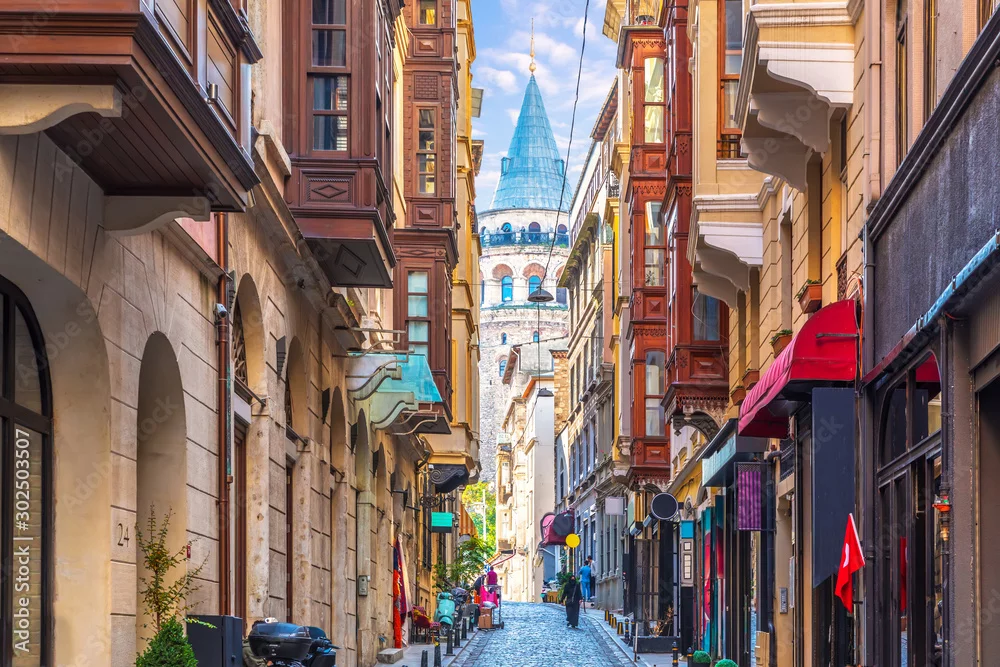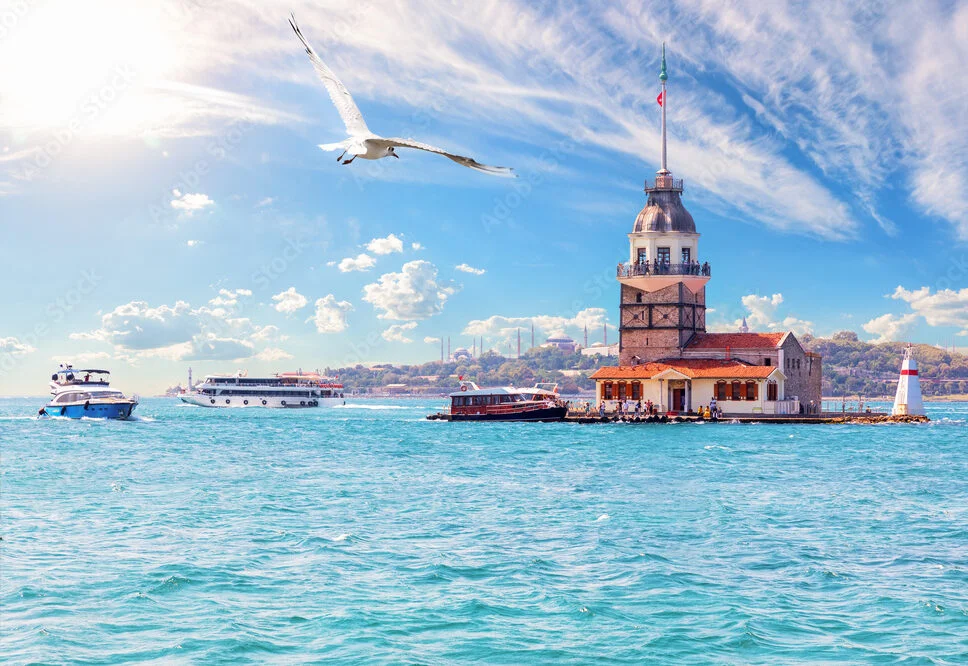Turkey At Galance!
Modern Turkey
Turkey stands as a expansive peninsula, acting as a connecting bridge between the continents of Europe and Asia. Bordered by the Black Sea, the Mediterranean Sea, and the Aegean Sea on three sides, the largest Turkish city, Istanbul, straddles the Bosporus seaway, partially residing in both Europe and Asia. In terms of size, Turkey surpasses the state of Texas.
Renowned for its seismic activity, Turkey has endured 13 earthquakes in the past 70 years, primarily due to the North Anatolian Fault, stretching from the Sea of Marmara in the west to the Eastern Anatolian Highlands, moving approximately 8 inches (20 centimeters) annually. Mount Ararat, the highest peak in Turkey, boasts two summits, with Great Ararat towering at 16,945 feet (5,165 meters) and is considered sacred, often associated with the biblical story of Noah’s Ark.
Whirling dervishes captivate audiences with their performances in Turkey.
PEOPLE & TRADITION
Turkey’s populace reflects a mosaic of backgrounds, a testament to the diverse groups that have shaped the country over millennia. Predominantly residing in urban areas, the Turkish people, primarily Sunni Muslim, include a substantial Kurdish minority. For education beyond high school, children often relocate to cities.
Family-oriented and known for their hospitality, Turks warmly welcome guests into their homes, ensuring they are well-fed and refreshed before departure. The Turkish diet is rich in lamb, eggplant, and yogurt, with kebabs being a favorite dish. Turkish delight, or lokum, a sweet confection with various flavors and colors, is a popular treat.
Approximately two million Turks have sought employment as guest workers in Germany, forming their own communities there. Soccer reigns supreme in Turkey, with three popular teams based in Istanbul, and the nation excels in weightlifting and Turkish wrestling.
NATURE
Turkey serves as a crucial resting point for birds during their migratory journeys, particularly at Kus Golu, or Bird Lake, nestled within a protected national forest surrounded by reed marshes. The country boasts 39 national parks dedicated to preserving rare species and their habitats, although some species, including the critically endangered northern bald eagle, face significant risks.
While Turkey was once home to jackals, lynx, wolves, and bears, these species have become rare. The Turkish horned viper snake, characterized by spikelike scales near its eyes, adds to the unique biodiversity. Pamukkale, in western Turkey, formerly known as Cotton Castle, features white cliffs made of travertine, a calcium-rich mineral, resembling a frozen cascade over the hillside.
 TURKISH FLAG
TURKISH FLAG

TURKISH LIRA
GOVERNMENT
In the political sphere, the Prime Minister leads the government, overseeing the country. The Grand National Assembly, a 550-member body elected by the people, plays a pivotal role in electing the largely ceremonial president. Turkey, a founding member of the United Nations, has been an associate member of the European Union since 1963, although full membership has not been achieved. As a member of NATO, Turkey’s strategic location in the Middle East positions it prominently in global affairs.
The Kurdish question has been a longstanding issue, with guerrilla warfare initiated by Kurds in southern Turkey in 1984 to establish a Kurdish state. In 1995, Turkish troops invaded northern Iraq to combat Kurdish forces.
HISTORY
Turkey boasts one of the world’s earliest settlements, Catal Hoyuk, dating back 8,800 years, featuring a labyrinth of 150 mud homes. The Hittites established an empire in central Anatolia about 4,000 years ago, ruling for centuries. The Trojan War occurred during the decline of Hittite power, with the ruins of Troy believed to be in Hissarlik in Anatolia.
King Midas ruled western Turkey around 700 B.C. In 334 B.C., Alexander the Great brought Anatolia under Macedonian Greek rule until Rome’s takeover, leading to Anatolia becoming part of Roman Asia Minor. In A.D. 330, Constantinople emerged as the Roman capital under Emperor Constantine, later becoming part of the Byzantine Empire.
The Ottomans conquered Constantinople in 1453, incorporating Turkey into the Ottoman Empire. After World War I, Greece invaded, sparking the Turkish War of Independence in 1920, led by Mustafa Kemal Atatürk. The Turkish assembly declared Turkey a republic in 1923, with Istanbul formally adopting its current name. Turkey embraced secularism, separating religion and government, and granted women the right to vote in 1934.
Recent Blogs
All News & Updates
Emergency Contact
For more Updates about Education in Türkiye, Contact us now and stay Updated.













